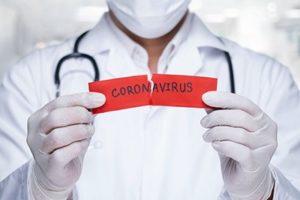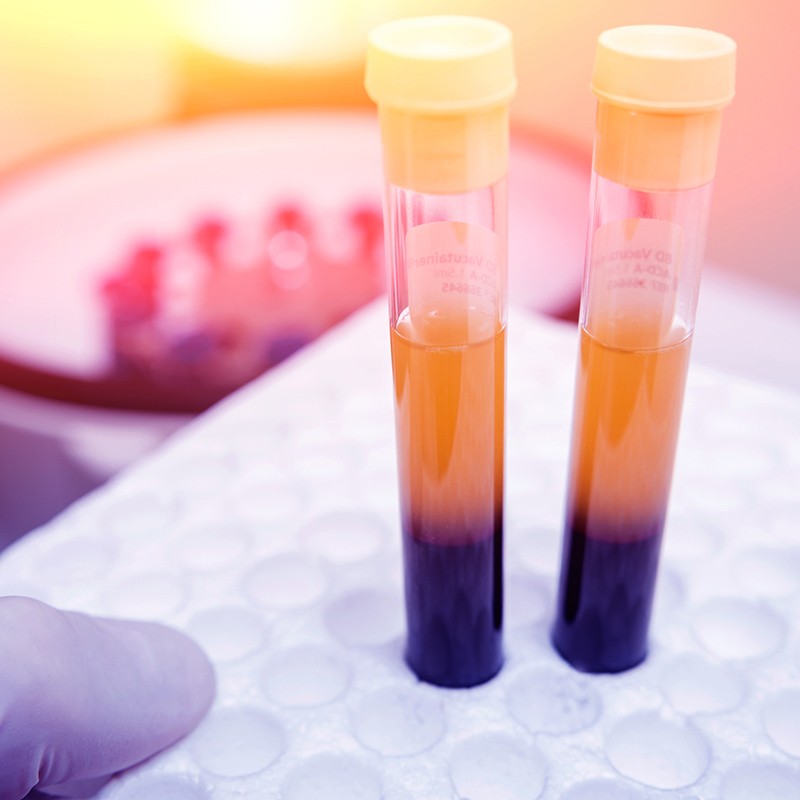In a race to overcome the ravages of the Coronaviruscoronavirus co·ro·na·vi·rus : any of a family (Coronaviridae) of single-stranded RNA viruses that have a lipid envelope studded with club-shaped projections, infect birds and many mammals including humans, and include the causative agents of MERS, SARS, and COVID-19, the FDA has approved emergency protocols allowing doctors to treat critically ill COVID-19COVID-19 \ ˈkō-vid-nīn-ˈtēn : a mild to severe respiratory illness that is caused by a coronavirus (Severe acute respiratory syndrome coronavirus 2 of the genus Betacoronavirus), is transmitted chiefly by contact with infectious material (such as respiratory droplets), and is characterized especially by fever, cough, and shortness of breath and may progress to pneumonia and respiratory failure. patients with plasma from survivors in the hope that the treatment will be effective in dulling the effects of COVID-19. The experimental treatment, reserved for patients who are in dire condition and at risk of death, is being instituted on a case-by-case basis until more sophisticated therapies and an eventual vaccine can be developed.

“Although promising, convalescent plasma has not been shown to be effective in every disease studied,” the FDA announcement said. “It is therefore important to determine through clinical trials, before routinely administering convalescent plasma to patients with COVID-19, that it is safe and effective to do so.”
The highly infectious virus has topped 600,000 cases worldwide, and it continues to take a massive toll on the healthcare system due to the severe nature of the symptoms. Approximately 20% of cases require hospitalization, and the most stricken patients must be placed on a ventilatorventilator ven·ti·la·tor | \ ˈven-tə-ˌlā-tər : a machine that provides mechanical ventilation by moving breathable air into and out of the lungs, to deliver breaths to a patient who is physically unable to breathe, or breathing insufficiently..
Two hospitals in New York City, Mount Sinai and Albert Einstein College of Medicine, hope to start using coronavirus-survivor plasma as early as next week to treat people with the disease.
“Every patient that we can keep out of the ICU is a huge logistical victory because there are traffic jams in hospitals,” said Michael Joyner, an anesthesiologist and physiologist at the Mayo Clinic in Rochester, Minnesota.
If a loved one is sick with COVID-19, your household will need to take extra precautions to keep from spreading the virus.
U.S. research trials also are expected to commence soon. The New York Blood Center plans to send out plasma for clinical trials at several hospitals, such as Johns Hopkins, the Mayo Clinic, and Montefiore Medical Center. The Johns Hopkins trial will enroll people who have been exposed to COVID-19 but who do not yet have symptoms, while Mayo and Monefiore will focus on people early into their illness.
Researchers plan to infuse patients at an early stage of the disease to see how often they advance to critical care. Another would explore plasma’s use as a preventative measure for people in close contact with those confirmed to have COVID-19 and evaluate how often such people fall ill after an infusion compared with others who were similarly exposed but not treated.
These outcomes are measurable within a month, said Liise-anne Pirofski, an infectious-disease specialist at Albert Einstein College of Medicine. “Efficacy data could be obtained very, very quickly.”
This virus is to be taken seriously. Please follow every precaution to protect yourself and others from passing on this highly infectious virus.


No comments yet. Be the first one to leave a thought.